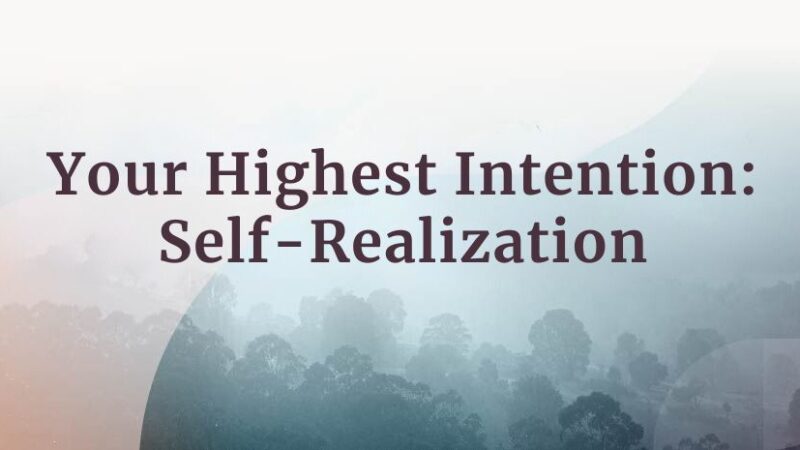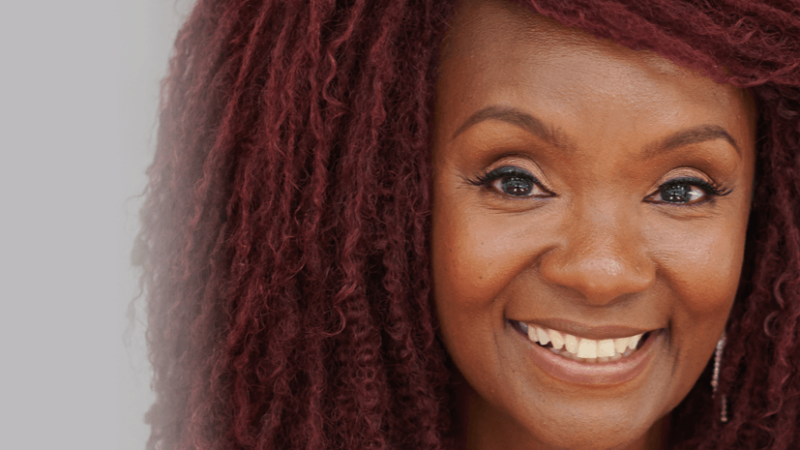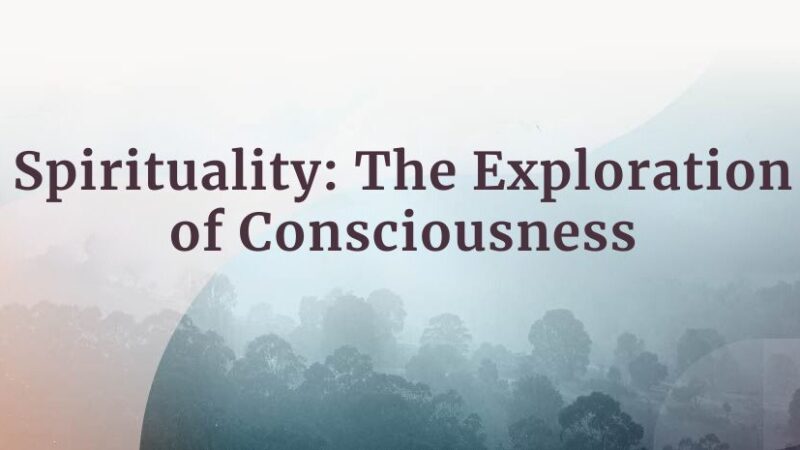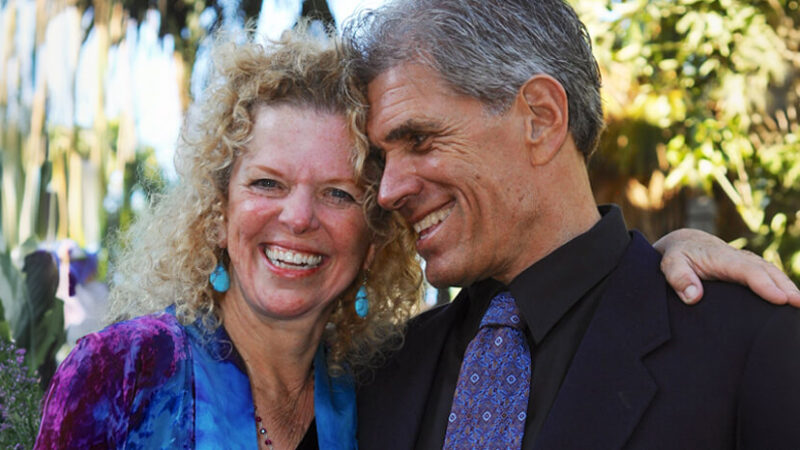-
E107: Becoming Okay Inside
Michael Singer — August 28, 2025
The fundamental spiritual question is not “How do I be okay?” It is “Why am I not okay?” Our ...
-
Andrew Holecek: What Reincarnates? | Part 2
Andrew Holecek — August 26, 2025
Join Tami Simon and Andrew Holecek for the second half of their exploration of reincarnation. Here,...
-
Honey Tasting Meditation: Build Your Relationship with Sweetness
There is a saying that goes “hurt people hurt people.” I believe this to be true. We have been...
Written by:
Amy Burtaine, Michelle Cassandra Johnson
-
Many Voices, One Journey
The Sounds True Blog
Insights, reflections, and practices from Sounds True teachers, authors, staff, and more. Have a look—to find some inspiration and wisdom for uplifting your day.
Standing Together, and Stepping Up
Written By:
Tami Simon -
The Michael Singer Podcast
Your Highest Intention: Self-Realization
Michael Singer discusses intention—"perhaps the deepest thing we can talk about"—and the path to self-realization.
This Week:
Andrew Holecek: What Reincarnates? | Part 2 -
Many Voices, One Journey
The Sounds True Blog
Insights, reflections, and practices from Sounds True teachers, authors, staff, and more. Have a look—to find some inspiration and wisdom for uplifting your day.
Take Your Inner Child on Playdates
Written By:
Megan Sherer
600 Podcasts and Counting...
Subscribe to Insights at the Edge to hear all of Tami's interviews (transcripts available, too!), featuring Eckhart Tolle, Caroline Myss, Tara Brach, Jack Kornfield, Adyashanti, and many more.
Most Recent
S1 E5: Your Highest Intention: Self-Realization
Have you ever pushed a thought aside or stuffed an emotion away deep inside? Most of us have! Michael Singer teaches that this is an act of will stemming from a simple intention: to feel better. In this podcast, he discusses the incredible power of our human will and how we use it, (for better or worse) in this deep exploration of intention and the pathway to self-realization and spiritual freedom.
For more information, go to michaelsingerpodcast.com.
© Sounds True Inc. Episodes: © 2024 Michael A. Singer. All Rights Reserved.
Making Money, Making Change
Rha Goddess is an entrepreneurial soul coach and the CEO and founder of Move The Crowd, a movement galvanizing over three million entrepreneurs to reimagine work as a vehicle for creative expression, financial freedom, and societal transformation. She’s the author of the book The Calling: 3 Fundamental Shifts to Stay True, Get Paid, and Do Good, as well as a new audio program with Sounds True, Making Money, Making Change: Build Your Business, Make a Profit, and Serve the World. In this episode of Insights at the Edge, Tami Simon and Rha Goddess talk about the ways so many of us have been indoctrinated into a disempowering relationship with wealth, and how we can break free from this indoctrination by examining six unchecked beliefs almost everyone holds. Tami calls Rha “the liberator” in this conversation, a nod to Rha’s remarkable ability to help us recognize where we need to heal, do the work, and co-create a life in which we make good money doing what our souls are here to do.
S1 E4: Spirituality: The Exploration of Consciousness
What do psychology and spirituality have in common? In this podcast, Michael Singer discusses how both psychology and spirituality help us illuminate the nature of the human mind and the mystery of consciousness. When we resist experiences we find uncomfortable, he explains, we begin to “make a mess” of our inner lives. Through the teachings and practices made available in spirituality and psychology, we can do the work of cleaning things up, purifying the flow of our life-force energy and returning to the ecstatic states we were meant to live in.
For more information, go to michaelsingerpodcast.com.
© Sounds True Inc. Episodes: © 2024 Michael A. Singer. All Rights Reserved.
Customer Favorites
Donna Eden and David Feinstein, PhD: The Power—and P...
Tapping is a simple form of energy psychology that can help you transform difficult emotions; overcome addiction, anxiety, or depression; change self-defeating habits; and more. Today, there are more than 175 peer-reviewed scientific studies supporting its efficacy. Yet despite 20 years of growing evidence, many people remain skeptical. In this podcast, Tami Simon speaks with the authors of the new book Tapping—Donna Eden and Dr. David Feinstein—about why the technique works and how to practice it successfully.
Listen in to this exciting, illuminating conversation on: energy medicine and the subfield of energy psychology; Thought Field Therapy and Emotional Freedom Techniques; how tapping produces such incredibly fast results; auras and chakras; acupressure points and piezoelectricity; the acceptance statement and other tapping protocols; breaking the cycle of inner judgment and negativity; the deep and authentic personal work tapping requires; subjective units of distress (SUDs) and the affect bridge; obstacles to change and psychological reversals; tapping as a tool for trauma healing; and more.
Note: This episode originally aired on Sounds True One, where these special episodes of Insights at the Edge are available to watch live on video with exclusive access to Q&As with our guests. Learn more at join.soundstrue.com.
Free, 12-part video series of self-acceptance
Access the Self-Acceptance Project free of charge
Self-aggression, self-acceptance, self-love, and issues of self-worth can be challenging for contemporary spiritual practitioners, even for those who have meditated or engaged in psychotherapy for years. There are many ways we can be unkind to ourselves, often subtle and unconscious, which can affect the way we perceive and engage in our lives, especially in interpersonal and intimate relationship.
In this free, 12-week video event series, I invited 23 psychologists, psychotherapists, neuroscientists, and spiritual teachers to speak with my friend and longtime colleague, Tami Simon, to explore these areas and how we might move toward the creation of a certain kind of holding environment in which we can grow, heal, and transform together.
All episodes of the Self-Acceptance Project are now posted and can be accessed as video or audio downloads, or can be streamed at no cost from the comfort of your own home. We invite you to join us for this pioneering series and look forward to sharing our discoveries with you – and hearing what you have learned. It is our intention that you benefit deeply from this work and that it guide you along your own journey of love and awakening.
Episodes include
- Developing Shame Resilience with Dr. Brené Brown
- Waking Up from the Trance of Unworthiness with Dr. Tara Brach
- Turning Towards Our Pain with Dr. Robert Augustus Masters
- Begin Exactly Where You Are with Jeff Foster
- Taking in the Good with Dr. Rick Hanson
- The Human Capacity to Take Perspectives with Dr. Steven Hayes
- What if There is Nothing Wrong with Raphael Cushnir
- No Strangers in the Heart with Mark Nepo
- Transforming Self-Criticism into Self-Compassion with Dr. Kelly McGonigal
- Faith in Our Fundamental Worthiness with Sharon Salzberg
- Developing a Wise Mind with Dr. Erin Olivo
- Embodied Vulnerability and Non-Division with Bruce Tift
- Perfect in Our Imperfection with Colin Tipping
- Staying Loyal to One’s Self with Dr. Judith Blackstone
- Compassion for the Self-Critic with Dr. Kristin Neff
- Curiosity is the Key with Dr. Harville Hendrix
- Kindness is the Means and End with Geneen Roth
- Healing at the Level of the Subconscious Mind with Dr. Friedemann Schaub
- Embracing all of Our Parts with Dr. Jay Earley
- Understanding Empathy and Shame with Karla McLaren
- Integrating the Shadow with Dr. Parker PalmerLetting Life Be in Charge with Cheri Huber

The Practice of the Imagination, with David Whyte
In this short video, poet David Whyte takes listeners on a journey into the nature and practice of the imagination. For David, while we ordinarily think of the imagination as the ability to think up new things, the poetic tradition sees the imagination as the ability in each of us to form a central image which provides a container for our own belonging. As we explore this image – and as it unfolds within us – we come to discover our innate aliveness.
David is the author of three inspiring audio learning programs with Sounds True:
When the Heart Breaks: A Journey Through Requited and Unrequited Love
Clear Mind, Wild Heart: Finding Clarity and Courage through Poetry
What to Remember When Waking: The Disciplines of an Everyday Life
Enjoy this short video with David on the practice of the imagination.





